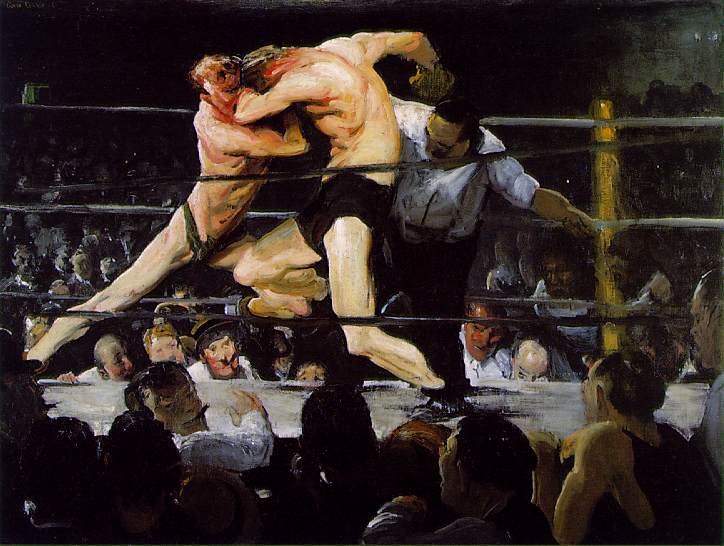How long will the shutdown go on? There is good reason to think the shutdown could last for several months or longer. Probably a long time, for many more weeks or months. Why? Let’s go back to 1951.
There was a shocking scene that year in Madison Square Garden, the famous New York City arena. You had a packed house, a sell-out crowd, 18,000 people. You had thousands more waiting outside. They were not there to see a sporting contest—but instead to attend a political rally, a midnight rally. But the rally was not even for a candidate, and the rally was for someone in Paris. But while the subject of the rally was not in attendance, some of the era’s biggest stars–Humphrey Bogart, Lauren Bacall, and Clark Gable–were there. And the rally ended with the famous composer Irving Berlin singing “God Bless America.”
The rally was for the World War II General Dwight D. Eisenhower, who at the time was the Supreme Allied Commander for NATO. The rally was to convince to Eisenhower to run for President. Upon seeing a video of the event, Eisenhower burst into tears.
What is interesting, and relevant to the government shutdown, is that in 1948 and 1952, kingmakers from both the Republican and Democratic parties sought Ike as their party’s presidential candidate. And in 1947, Democratic President Harry Truman offered to be Eisenhower’s vice-presidential running mate if Eisenhower would be the party’s presidential candidate!
Eisenhower had not aligned himself with either party. He would become the Republican presidential nominee in 1952.
That Eisenhower was recruited to be the Democratic and Republican nominee speaks volumes about the closeness of the country’s two major parties. The era where the same woman or man could be the leader of the Republican party or Democratic party is gone.
Now, factions far away from the center control each party.
In Dana Milbank’s Homo Politicus, he writes about the 2000’s:
[Washington] operates under a principle stated most eloquently by Grover Norquist, a Republican activist. “Bipartisanship is another name for date rape,” he told the Denver Post in 2003. “We are trying to change the tone,” he continued, “toward bitter nastiness and partisanship.”
Each [party] has several self-declared enforcers of loyalty. These men—unelected activists, for the most part—set standards for membership in the clan and seek to remove those who have been impure. Though they spend a good bit of time warring with those of the other party, they are at least as interested in setting kinship qualification in their own.
These purification rites are dangerous business.
Milbank gives several examples of the steep political price politicians pay when they so signs of impurity.

Bipartisanship seems like a thing of the black-and-white-television era, especially when it comes to immigration legislation and policy. Opposing Trump on immigration is a standard of membership for one party. Supporting Trump on his wall appears to be becoming a standard of membership for the other party. It’s hard to imagine many Democrats in the House of Representatives voting to fund the wall Trump wants. It’s hard to imagine Republican activists letting Trump off the hook if he gives up in his fight to get his wall funded.
We are far from 1951, and this does not augur well for the reopening of shuttered agencies.
And this may have a real immigration-related impact on individuals, families, and businesses. For example, as stated in yesterday’s blog post, if the shutdown lasts for a long time, (1) US consulates and embassies will probably stop processing visa applications, and (2) many USCIS petitions and applications will take longer to adjudicate.
